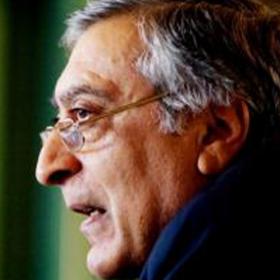
The Syrian Cauldron Has Been Boiling with Toxic Ingredients
The witches brew in the Syria cauldron continues to bubble. The Assad government’s initial violent suppression of domestic political protests opened the door to multiple external interventions. Its derecognition by major Western powers on human rights grounds politically “legitimized” internal resistance and set in motion regime change efforts by outside actors with varying motives and means.
With major Western powers committed to Assad’s removal because of his regime’s alleged brutalities, including chemical weapons use, the Gulf states funding extremist Islamic groups to oust an ally of Iran, and Turkey, seeking to realize Erdogan’s Muslim Brotherhood and Ottoman-era ambitions in Syria (and beyond), the Syrian cauldron has been boiling with toxic ingredients. With the complicity of key Gulf states, Turkey’s opportunism and complaisance of some Western quarters the most noxious product has been the Islamic State (IS). Because of its horrifying excesses in Syria (and Iraq) those that sponsored it in order to drive a Sunni wedge in the “Shia crescent” were eventually compelled to decimate it.
If Russian military intervention prevented the Assad regime’s collapse and ensured the survival of the Syrian state, albeit truncated, geopolitically the ground situation got complicated further because of collapsing Russia-U.S./Europe ties. Russia becoming indispensable for any resolution of the Syrian conflict only deepened Western concerns about its resurgence as a power. Any future solution that protects Russian equities could well be seen as a strategic defeat of U.S./Europe and their protégés. Escalating U.S.-Iran tensions, rooted also in Iran’s regional role in Syria and connected Israeli concerns, point to roadblocks to peace ahead.
Click here to read the full article on Metro UN.

